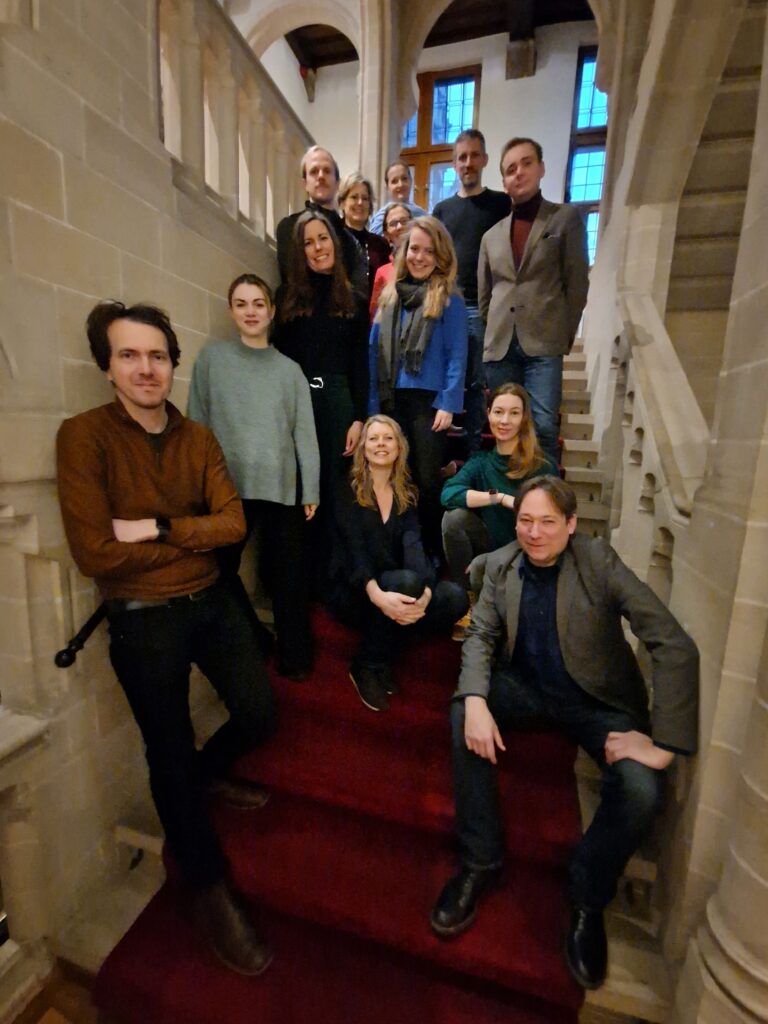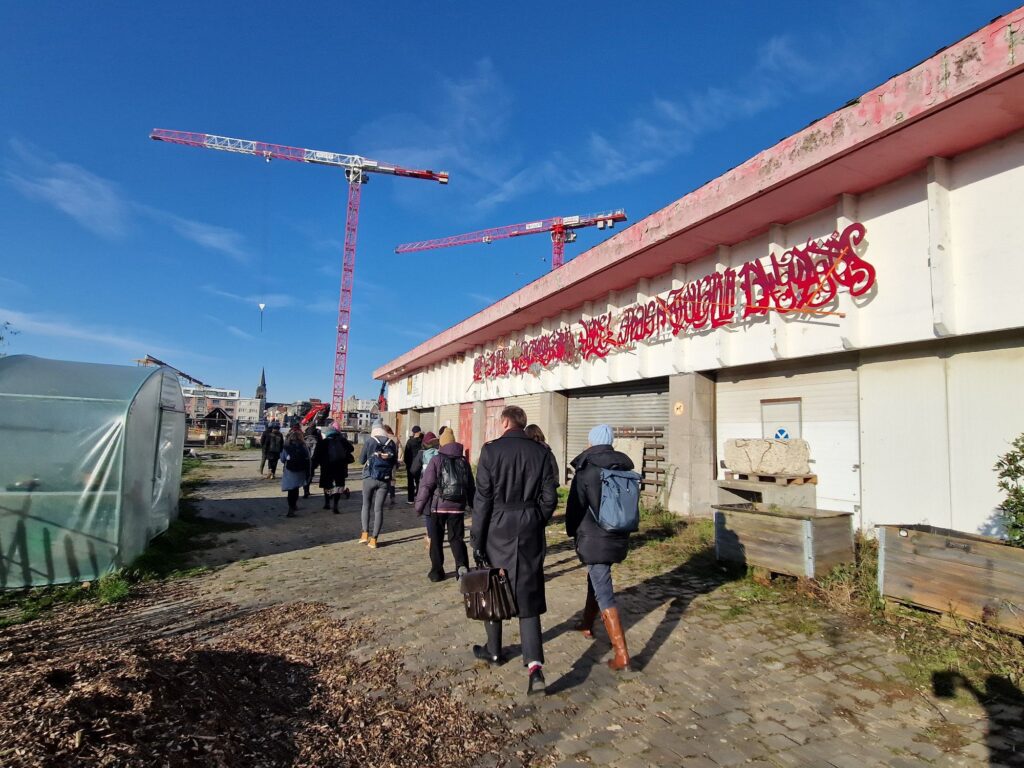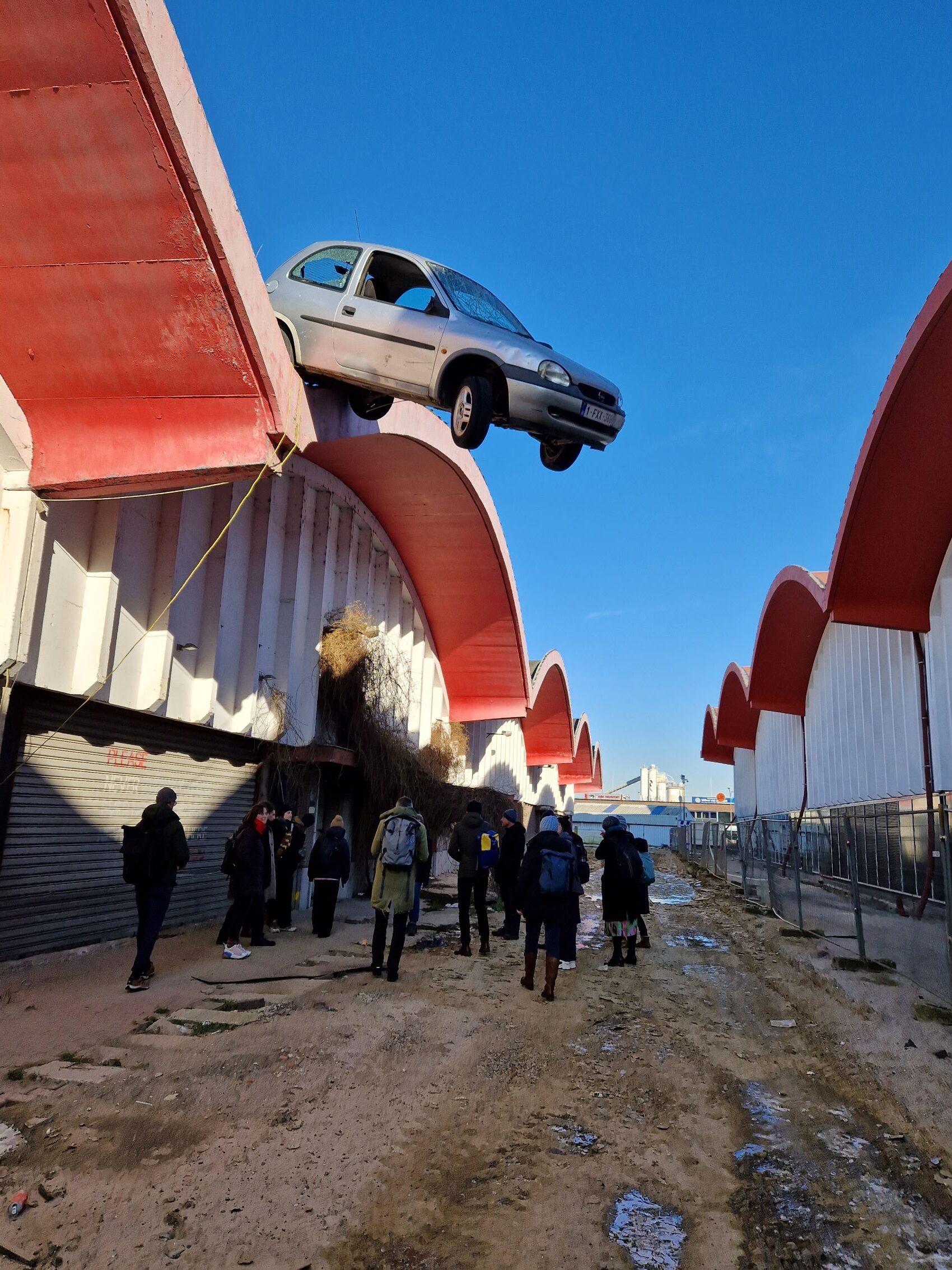Text by Lisa De Roeck
At the start of 2024, the CONTRA researchers gathered in Antwerp for our third international consortium meeting. This time, our program also featured an insightful exchange with local artists when visiting Archipel, an artist-managed workplace and breeding ground for local and international artists in Antwerp. Here, we had to chance to gain valuable insights into the work of the artists present and how they view urban transformations as well as the use of art in dealing with urban conflicts.
Archipel serves as an artistic incubator for local and international artists and organizations. Currently, about thirty residents are located within their building. Beyond being a mere workplace, they function as a place where inclusive and artistic projects can grow. Archipel also functions as a catalysator for social-artistic events.
Located in the north of Antwerp, Archipel resides in an area undergoing significant urban transformations. Formerly home to the city’s slaughterhouses, this neighborhood is still characterized by its historical past, while at the same time facing several tensions due to large-scale transformations, with for example extensive new housing projects being planned there.
Archipel itself also underwent relocation. First, they were situated within the old slaughterhouse buildings themselves, after which they had to relocate due to plans from private developers. During our visit, artists from Archipel shared their experiences of navigating these tensions with the municipality as well as private developers and how they used art in the search for a new location. Therefore, their experiences were very much in line with CONTRA’s research design, particularly how urban conflict is dealt with and what the role of artistic practices can be in doing so.
Today, at their old location, their presence is still visible with large installations as well as poetry reminding people passing by of Archipel’s previous work and the locally rooted projects they are part of.
Additionally, we also had to chance to learn from a neighbor of Archipel, a local committee dealing with the maintenance of a vegetable garden as well as the effects of climate change in an urbanized environment and how they deal with the changing conditions around them.
These exchanges gave us as researchers much to reflect upon, especially in terms of the interplay on how artists, residents and urban actors deal with change in urban environments and the resistance that may come with it.










Comments are closed